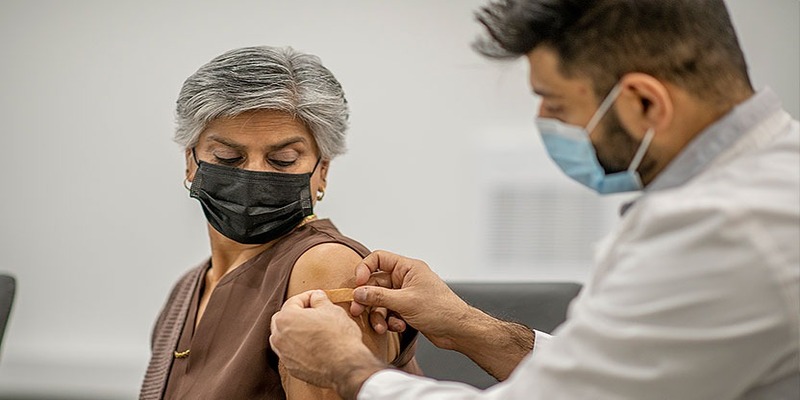The severe acute respiratory syndrome coronavirus is the causative agent of the newly recognized coronavirus illness, which emerged in December 2019. A wide variety of symptoms can occur, but most resolve independently. These include fever, chills, cough, shortness of breath, headache, exhaustion, body pains, a sudden loss of smell or taste, nausea, vomiting, and diarrhea.
Over 33 million instances of COVID-19 have been reported as of June 2021, with approximately 600,000 fatalities in the United States alone, highlighting the urgent need for a highly efficient and risk-free vaccination to curb the further spread of COVID-19 and its associated consequences.
Guidelines For Vaccination In Immunocompromised Individuals
Alterations in immunocompetence are addressed in the Advisory Committee on Immunization Practices General Best Practice Guidelines for Immunization. The recommendations in this document apply to both primary and secondary immunodeficiency in individuals.
Due to safety concerns related to the emotional development of attenuated live virus vaccine, live vaccinations are often postponed in this patient population until the immune function has improved. On the flip side, inactivated viral vaccinations may be less effective and require more than one dose.
COVID-19 Immunization Guidelines For Immunocompromised People

There needs to be more research on the safety and efficacy of COVID-19 vaccinations in these specific groups, even though several professional associations have issued guidance on their usage.
Since HIV-infected patients, solid organ transplant recipients, patients with inflammatory bowel disease, and patients with rheumatoid arthritis are all considered immunocompromised populations, we sought to review current recommendations and data for these four populations.
Patients With HIV
So far, phase 3 COVID-19 vaccination trials have exclusively enrolled patients with HIV, who are the only immunocompromised patient population. Patients with stable HIV infection (CD4 count >''200 cells/mm3, undetectable viral load, and six months of steady antiretroviral treatment) were included in the Pfizer-BioNTech vaccination study.
The primary effectiveness and safety analysis did not have the 121 HIV-positive patients who made up 0.3% of the research group. 12 Fewer individuals with acute HIV infection were included in the Moderna vaccination research. In this study, a CD4 count of 350 cells/mm3 or above with an undetectable viral load within a year indicated stable HIV infection.
Patients Who Have Had A Solid Organ Transplant

All three of the FDA-approved COVID-19 vaccines in the United States did not include patients who had received a solid organ transplant in their phase 3 investigations. However, to determine whether or not the first dose of COVID-19 vaccination administered to SOTRs undergoing immunosuppression was safe, a small, nonrandomized, observational research was carried out.
Of the 187 SOTRs who got their initial vaccination in this trial, half were given the Pfizer-BioNTech vaccine, and the other half were given the Moderna vaccine. Patients had received a transplanted kidney (52%), liver, heart (14%), lung (9%), kidney/pancreas (3%), or multiple organs (3%) a median of 6 years prior.
No self-reported instances of polymerase chain reaction (PCR)-confirmed COVID-19 were found in an online questionnaire completed one week after immunization.
Patients With IBD
Additionally, phase 3 studies of the COVID-19 vaccination did not enroll patients who had inflammatory bowel disease (IBD) or received immunotherapy for IBD. Multiple organizations, however, have issued position statements for this subset of patients, all of which are informed by the consensus of experts.
According to the Crohn's and Colitis Foundation's position statement from January 2021, all presently available vaccinations and those known to be in phase 3 testing are safe for people taking IBD therapies since they do not contain live virus particles.
Patients receiving some immune-modifying medications may have a diminished vaccine response, but the foundation emphasized that this is not a reason to delay immunization.
Arthritis Patients
Patients with RA and inflammatory bowel disease were prohibited from participating in the COVID-19 vaccine's third-phase studies. A revised COVID-19 vaccination clinical advice summary for patients with rheumatic and musculoskeletal illnesses was published in April 2021 by the American College of Rheumatology (ACR).
However, the ACR agrees with the position that hazards would very unlikely exceed benefits, as is the case with guidelines for other immunocompromised patient categories, although acknowledging that there is no direct information concerning COVID-19 vaccination safety and efficacy in this population.
Thus, there was moderate agreement among the task force that patients with RA should get COVID-19 immunization, and there was strong agreement that antibody testing should not be routinely requested to determine immunity to COVID-19 after vaccination.
watch next


